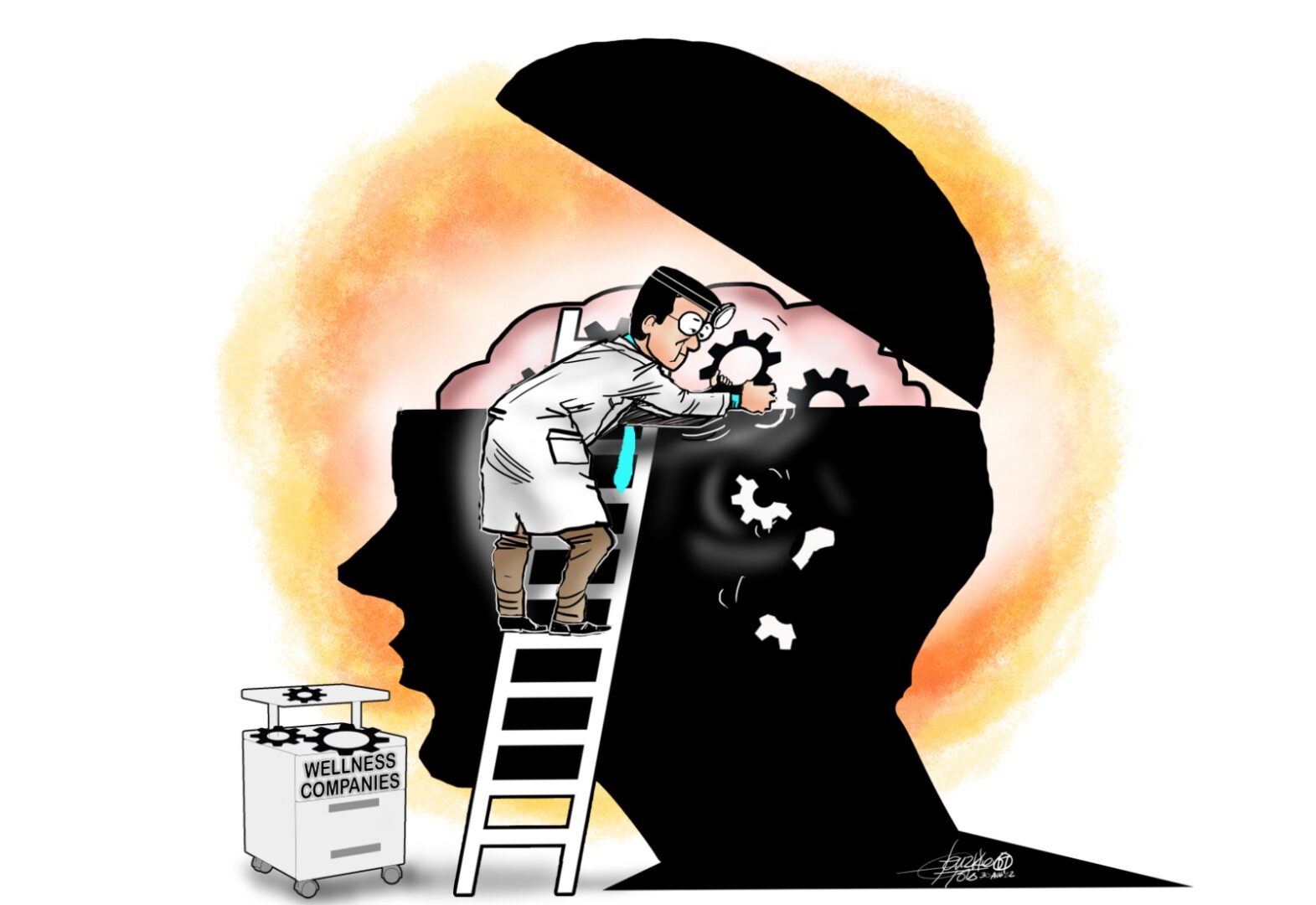Some may color the gloomy prognosis of a private “wellness” company that over 50 percent of Filipino workers are facing Covid-19 pandemic-related mental health challenges that are supposedly leading to “a rise in absenteeism, productivity loss, and employee resignation.”
After all, the company is promoting an application that’s claimed to give the public 24/7 access to mood trackers and similar well-being programs that, to jaded observers, may start as free services only to end up behind paywalls after people had been hooked.
Nothing wrong with that in a free market like the Philippines as long as the solutions offered, including access to tele-counseling, are not primarily motivated by the desire to make money from the misfortune of others.
The dire scenario being painted may be seen as some kind of wellness client-sourcing at a time when companies and workers are both trying to get back on their feet and could ill afford to pay the exorbitant fees charged by so-called mental health professionals.
Quiet-quitting as the latest buzzword — defined as doing the bare minimum a job requires — can be seen as part and parcel of efforts to paint most workers as having been pushed by the pandemic to the precipice that they are now like mindless zombies at offices and production lines.
Further fueling mental health paranoia would certainly feed a mental health market already valued at $383.31 billion in 2022. That market is seen to increase to $537.97 billion by 2030.
This is not to deny that the world may be at the cusp of a mental health crisis, which governments of the world should address as part of their basic services to taxpayers. In Congress, House Bills 3424 and 3582 had been filed to establish mental health centers nationwide, and to provide workers five days of mental wellness leave each year.
If passed into law, HB 3424 would mandate the Department of Health to establish mental health support centers in the different provinces and regions to make mental counseling and support readily available for all. Another proposed legislation, HB 1926, sought to require employers to come up with programs that would help ensure the mental well-being of their workers.
In the meantime, for Filipinos facing mental health issues, free telephone counseling is provided by a number of organizations, including the Suicide Crisis Lines at 8893-7603/ 0917-8001123;
Hopeline at 8804-4673/ 0917-5584673/ 0918-8784673; Tawag Paglaum-Centro Bisaya at 0939-9375433/ 0939-9365433; Mood Harmony at 8844-2941; Dial-a-Friend at 8525-1743 and 8525-1881; and the National Mental Health Crisis Hotline 1553/ 0966-3514518 and 0908-6392672.
These tips by the World Health Organization on how people can look after their mental health can also help them as they grapple with the big changes to daily routines brought about by Covid-19.
According to the WHO, people must “keep themselves informed” by following trusted news channels, while minimizing exposure to distressing “newsfeeds,” especially fake news swirling on social media, that can make one anxious or distressed.
“Social contact is important. If your movements are restricted, keep in regular contact with people close to you by telephone and online channels,” the WHO said, as it warned against alcohol and drug use. “Avoid using alcohol and drugs as a way of dealing with fear, anxiety, boredom and social isolation,” it said.
As people become heavily dependent on gadgets like laptops and smartphones, the WHO has advised people to be aware of how much they spend in front of screens each day, including when playing video games. “While video games can be a way to relax, it can be tempting to spend much more time on them than usual when at home for long periods.”
On social media, the WHO said people must promote positive and hopeful stories and must correct misinformation instead of propagating them. To all this, we’d like to add — talk, talk and talk. Talk with loved ones and friends, but be very responsible in fostering positivism by letting people express fears, feelings of emptiness, and sadness, so they can be put in the proper perspectives and not unduly magnified.
